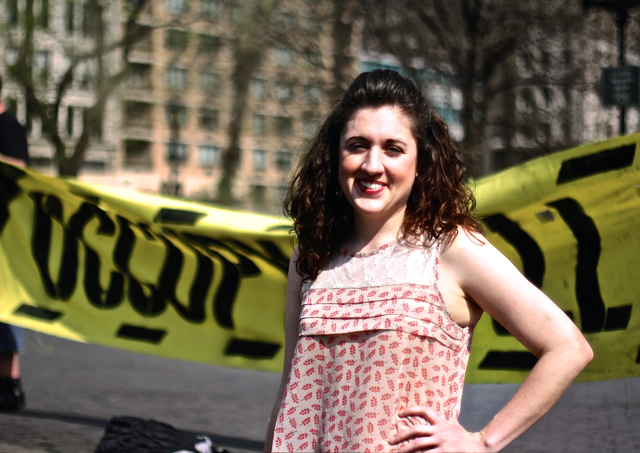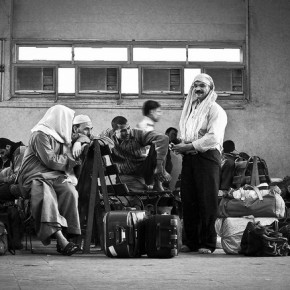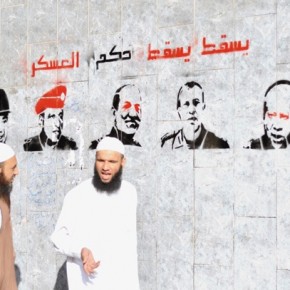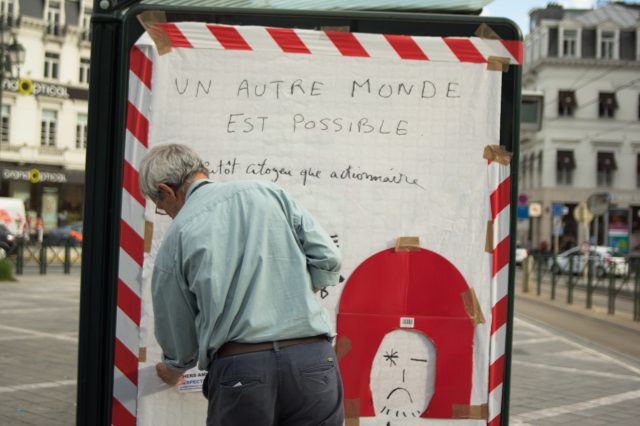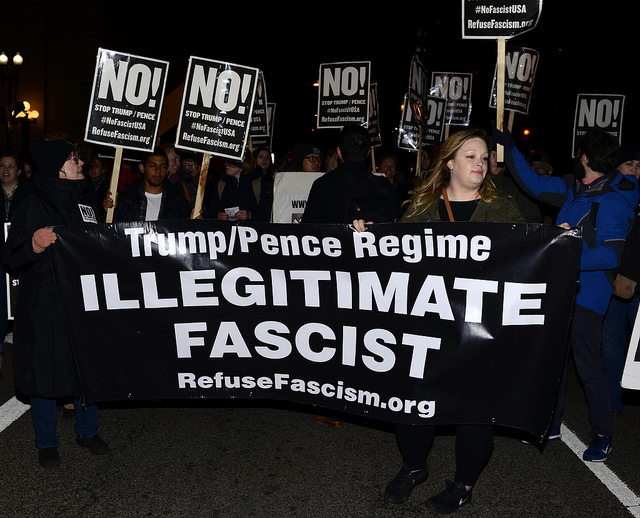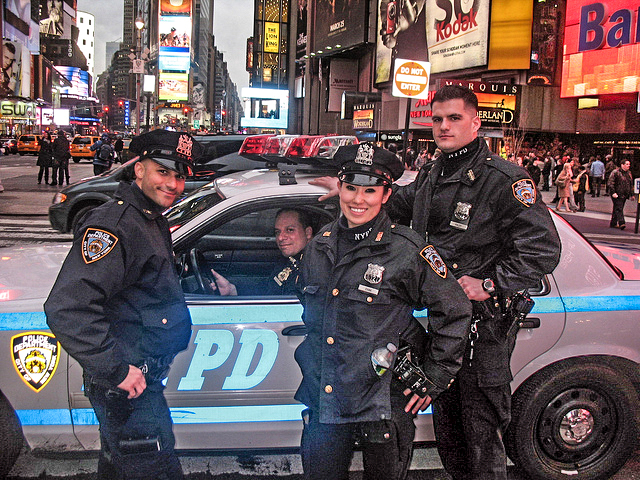Computer scientist Hal Berghel once said of American judicial oversight of government surveillance, “While this might not meet the strict definition of a kangaroo court, it seems to fall within the marsupial family.” The same could be said for the ordeal of 25-year-old graduate student and Occupy Wall Street activist Cecily McMillan.
In a downtown Manhattan courthouse, McMillan sits during her trial, in which she is accused of striking a police officer in the face with her elbow. She faces up to seven years in prison. Her claim is that on March 17, 2012, during an OWS gathering at its original space in Zuccotti Park in the Financial District, cops began to round up the anti-capitalist protestors. She was allowed to leave but then as she was departing, she felt someone grab her breast from behind and she instinctively kicked back her elbow. She was beaten and arrested, then she suffered a seizure, and after cops initially ignored her medical needs, she was taken to a hospital, charged and released.
The criminal justice system has done everything to ensure McMillan’s conviction. The Manhattan District Attorney, perhaps the nation’s most influential local prosecutor, offered her a plea deal that would have allowed the activist to escape jail, but have an onerous three-year probation and a felony on her record. The judge, Ronald Zweibel, who one commentator calls a “prosecutor with a robe,” has suppressed evidence of the arresting cop’s record of excessive brutality. He even went as far putting gag order on the attorneys since her defense was advocating for McMillan in the press. Not only does this have the affect of crippling her supporters’ ability to publicize the trial. It hurts truthful reporting, as journalists often use background conversations with lawyers to get clarity on court proceedings.
Further, one court observer recalled that the judge chided McMillan for nodding while her lawyer was speaking, as if to signal that agreeing with one’s own counsel is a corruption of the justice system. Finding a fair jury was hard enough; the defense had to eject several Wall Street employees who voiced their disdain for those critical of their sector.
The record of the arresting office, Grantley Bovell, who has allegations of violence toward arrestees and connection to a giant ticket fixing scandal, stands in stark contrast to that of McMillan. By all accounts, McMillan preached non-violence during OWS, and never saw the police as the movement’s enemy. She is a member of the Democratic Socialists of America, perhaps one of the tamest organizations on the American Left in terms of tactics, hardly a hotbed of Black Bloc nihilism. Her story is completely plausible and there is plenty of photographic evidence of the bruises on her body. Why, then, is the state so aggressively intent on ruining this woman’s life? There are two motivations, one cynical, one sinister.

The first answer rests with Manhattan District Attorney Cyrus Vance, elected in 2010 following the illustrious thirty-four year stint of Robert Morgenthau. The son of President Jimmy Carter’s Secretary of State, the mild-manned Vance emerged from private practice obscurity to take on the high profile government gig, and immediately earned poor marks. He bungled the prosecution of former International Monetary Fund chief Dominique Strauss-Kahn. Making matters worse for himself, he also failed to secure a conviction of two police officers charged with raping a drunk woman in the East Village, which not only dimmed his image in the public, but sullied his relationship with the New York Police Department.
Thus, it has been very important for Vance to rebuild his relationship with the cops, so that they are fully engaged with his efforts to secure convictions. And he needs a high profile conviction to show that he’s tough crime fighter, something he hasn’t been able to do so far.
But the more sinister reason is that until now, OWS has been victorious, legally speaking, with its encounters with the police. The charges against the hundreds of arrestees on the Brooklyn Bridge were dropped. Shawn Schrader, after being beaten police, secured a settlement of $82,000. There has yet to be a conviction of any OWS person that could in any way justify the brutality of the NYPD in its mobilization against what was an overall peaceful protest movement.
A guilty verdict would validate the NYPD’s paranoia, and would be used to justify even more militarization in the policing of protesters in the future. But even if McMillan is acquitted, she and the movement have already suffered a terrible defeat. Observers and friends say that the pressure of the impending trial have taken an emotional toll on McMillan; she reportedly cried when she watched the video of her arrest during the trial.
But it’s also another distraction for what’s left of the OWS movement, which meant to target the dominance of the financial system in politics and the vast economic inequality plaguing the nation. During the heyday of the movement, there was widespread fear that confrontations with the police and anger toward police repression would sidetrack the movement, shifting attention away from capitalism, toward law enforcement. This trial is another iteration of that of that fear. On the other hand, it is just further proof of the relationship of state violence with the defense of corporate power.
Photographs courtesy of Sparrow Media and Justice for Cecily. All rights reserved.
